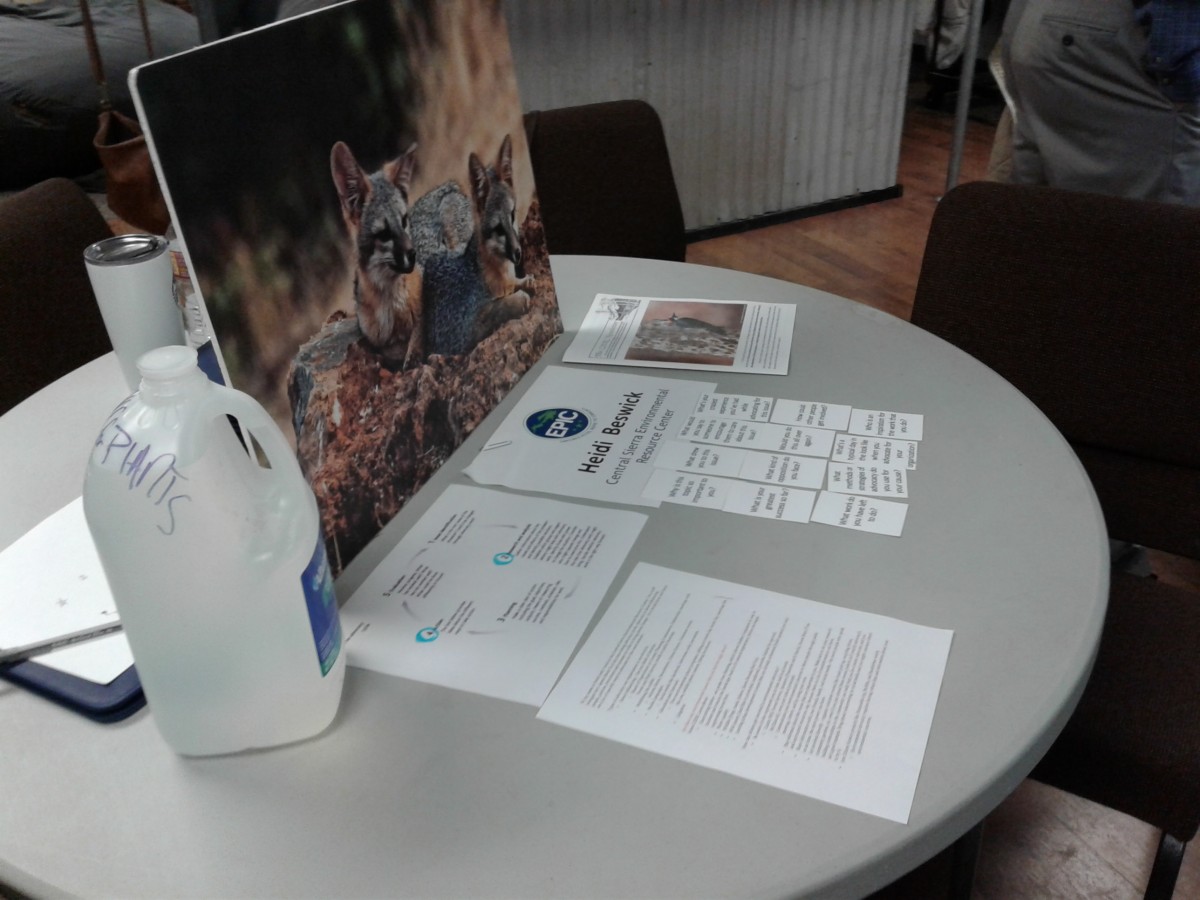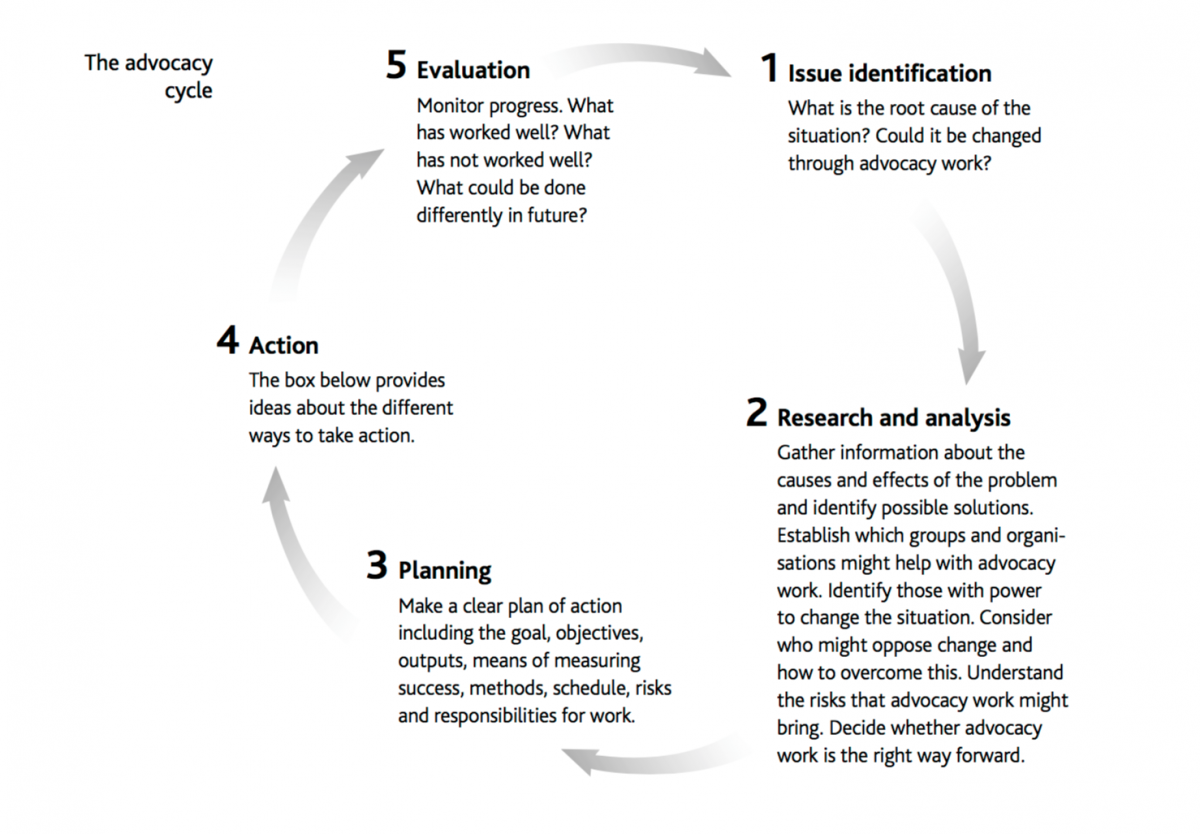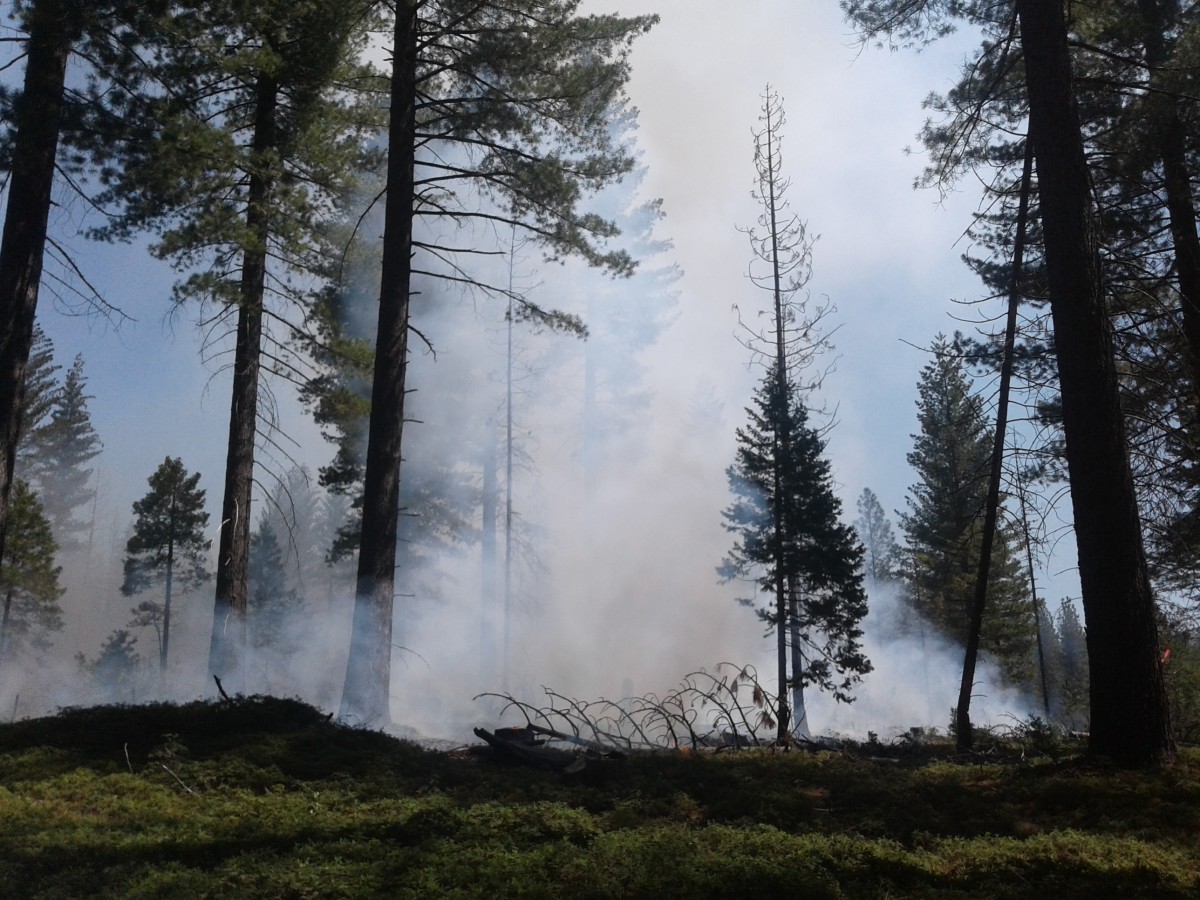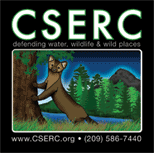As a biologist at CSERC, I (Heidi) sometimes have the opportunity to talk to the community about the important work that we do. On January 9th, I attended the meeting of a local youth coalition called EPIC - "Empower Peers, Inspire Community" - to talk to high schoolers about environmental advocacy. The students, who come from schools all throughout Tuolumne County, voluntarily joined the coalition and attend informative meetings like this one on a monthly basis. The goal of this meeting was to introduce students to the concepts of media and advocacy. The students were divided into small groups in order to have informal conversations with the visiting speakers - jokingly referred to as "advocacy speed dating." I came prepared with some main points - the types of advocacy CSERC engages in, the issues we focus on, and ways citizens (especially students) can get involved in environmental advocacy.


Each group of students was to spend 20 minutes with each speaker. I knew this time would go by quickly, and I was unsure whether to spend time using a quick learning activity or visual aid to engage students (which is helpful for shy or uninterested students), or whether to leave a lot of time for questions. I decided to let them guide the pace and direction of the conversation. As much as there is to talk about regarding CSERC's environmental advocacy, I wanted to be sure to touch on topics that were most valuable to the students. From the first group that sat down with me, I could see that these high schoolers were extremely motivated, curious, and interested in ways to positively influence their community.
They asked perceptive questions, and were eager to share what they knew about environmental issues. When I described attending and providing public comments at county planning meetings, one student asked, "How can someone like me comment at a planning meeting?" Others asked about forest fire suppression and fuel loading, and about the challenges I face while advocating for an issue. When there were gaps in our conversation, they would ask something off of their lists of prompt questions. Without exception (even when we disagreed on certain environmental topics), they were polite and thoughtful. I enjoyed every minute of this activity, even as I began losing my voice from talking too much.

I discussed how CSERC achieves its goals to protect water, wildlife, and wild spaces, and I tried to highlight two important aspects of advocacy: being aware of who makes decisions that affect you at the state and local level, and being well informed about the issues you want to bring to people's attention. I'm hoping I was able to provide insight that was valuable to these students. I found the experience inspiring myself! While I often worry about the devastating impacts of climate change now and in the future, talking to these students reminded me that there are many young people who are aware of environmental problems and are extremely motivated to address them. As I left, the program coordinators said they hope CSERC will continue to be involved with EPIC, and I will be looking forward to it.

